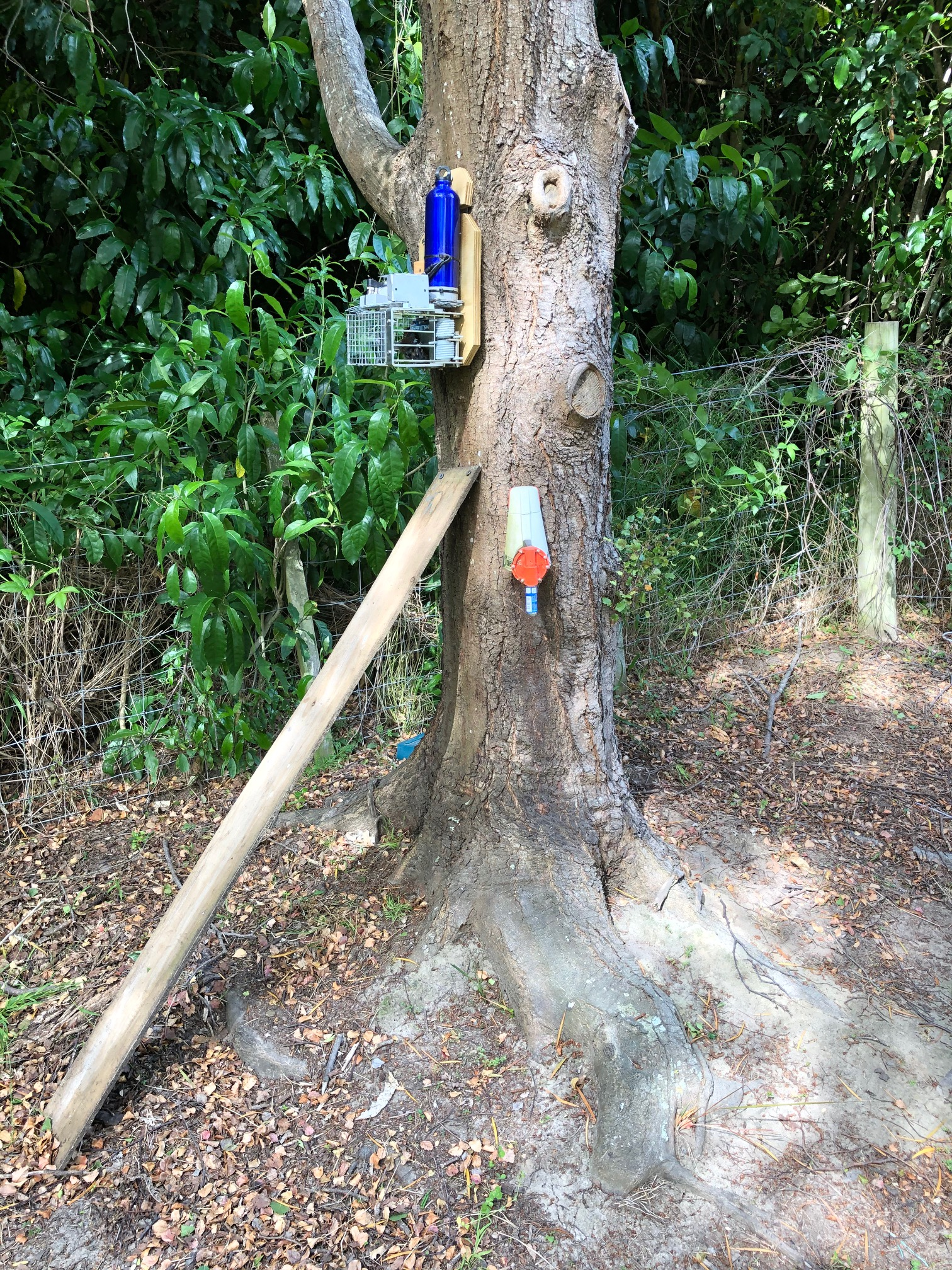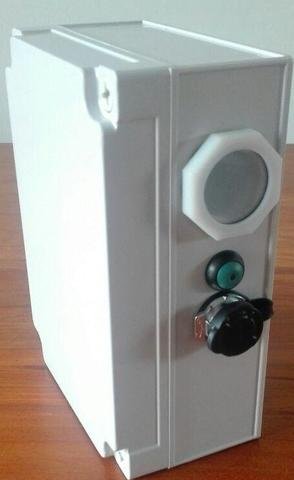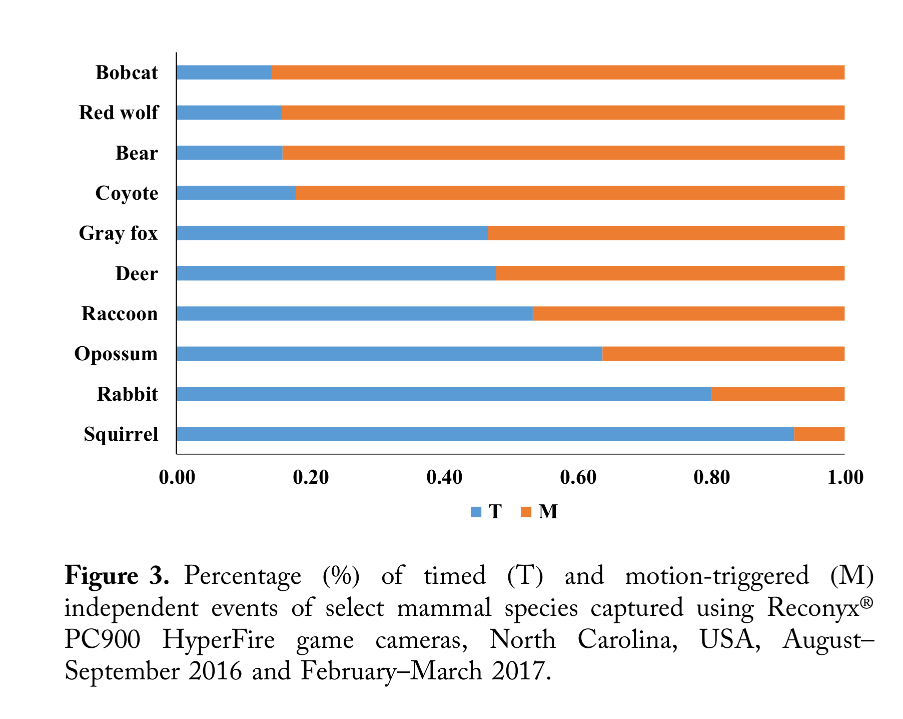
Blog

Another Experiment Showing Very Low Predator Trap Interaction Rates
The Eastern Bays Songbird project has been going for 2 years and the members were keen to see how they were getting on with their goal of predator eradication. They have been using a 2040 Thermal Camera developed by The Cacophony Project to see what is going on around their traps.

Effectiveness of Aerial Poison Drops
Our previous blog post showed a simple model to allow you to work out trap interaction rates. The goal of this post is to show that this same simple model can also be used to explain the effectiveness of aerial poison drops.

How Often Do Predators Interact with Traps?
Over the last three years we have had various versions of our thermal cameras in front of all the main types of traps. What we have found is that a large number of predators seem to just walk on past irrespective of what type of lures and set ups we use.

Self-Resetting Possum Traps – how well do they work?
As part of our testing we often put our cameras in front of existing traps to see if we can work out the pros and cons of different tools.

Camera Updates
Shaun from our commercial partner 2040 Ltd has just published a new blog article which covers a host of recent developments with the Cacophony Project's Thermal Camera. He mentions the new thermal lens design, our progress with running the AI classifier on the camera, the new "Power Tagging" web interface and more.

Cacophony Index Is Live!
The first version of the Cacophony Index is now live. The Cacophony Project was first started to attempt to answer a seemingly simple question: "is a bird population getting better or worse over time?". We now have a tool available which can start to answer this question.

External Research Confirms How Poor Trail Cameras Are at Detecting Small Animals
We recently came across a new and very cool piece of research which investigated the effectiveness of conventional trial cameras for detecting various North American mammals. To conserve power, trail cameras stay asleep most of the time and use a basic motion sensor to wake the camera up to take photos.

Audio and Scent Lure Rat Experiment (August - September 2019)
Throughout August and September 2019, The Cacophony Project ran an experiment exploring the efficacy of various audio and scent lures in attracting, and capturing, rats.

Thermal Cameras vs Conventional Cameras for Predator Detection in NZ
Conventional trail cameras are cheap and offer high image resolutions. They are designed for detecting larger animals such as pigs and deer. Thermal cameras, like those used by the Cacophony Project, are much more expensive and typically have lower resolution. Conventional cameras need an IR light source to "see" at night while thermal cameras do not.

Effectiveness Vs Power Consumption
Some of the predator monitoring and trapping solutions we are developing require more power than traditional tools. This article explores why we think the effectiveness of tools is more important than power use for most of the applications we are interested in.

First Morepork Automatically Identified
We're really excited about 2040, a social venture that is commercialising the technologies developed by the Cacophony Project. They've recently published a blog article about some ongoing research by Tim Hunt from Wintec who is using audio recordings gathered by the Bird Monitor product to automatically detect and identify morepork calls.

A Powerful New Way to Test Sound Lures
We have created a new tool that allows us to test many different methods to lure and capture predators of any type, using sound and thermal vision. We are calling this tool the Cacophony Predator Lab.

Predictive Tracking Using Kalman Filtering
Through the use of a Kalman filter, there has been a significant reduction in noise and better handling of occlusion when following an animal's movement. Kalman filters are a powerful tool which can be used to predict the current and future state of a system using the weighting between the sensor input uncertainty and previous estimate uncertainty. Kalman filters are computationally efficient and well suited to embedded system applications.

Why Specialised Thermal Cameras Are Well Suited to NZ Predator Management
Recent testing of the Cacophony Project's thermal camera has reinforced how good this type of technology is for predator monitoring and control. This blog post highlights the core reasons that the thermal camera developed by The Cacophony Project is a great technology for this application.

The Importance of Scent Trails
As highlighted in earlier blog posts, the Cacophony Thermal camera is much more sensitive for the detection of predators than the next best tool. It is able to see 3 to 50 times more activity, allows us to make observations that have never been possible before.

Techweek 2019: Tech for Good panel
Last week, Menno Finlay-Smits from the Cacophony Project participated on a Techweek 2019 panel which was centred on the idea of "Tech for Good".

Trial Update: Rat Detection Rates 10-50 Times Better Than Trail Cameras
We have continued the rat detection experiments recently described on this blog and have updated results to report.

Winners at the NZ Hi-Tech Awards!
The Cacophony Project were honoured to be awarded the Best Hi-Tech Solution for the Public Good at the NZ Hi-Tech Awards gala on Friday night.

Thermal Camera 5-20 Times More Sensitive for Rats
David Blake is a contributor to the Cacophony Project and has been running an experiment to test the relative sensitivity of Cacophony Project thermal cameras to off-the-shelf trail cameras for detection of rats.

Using Cacophony Project Technology to Find the South Island Kōkako
Every year there are a number of compelling reports of encounters with the elusive South Island Kōkako. This precious bird with a beautiful haunting song was once declared extinct but hope remains of finding it alive and bringing it back from the brink of extinction.
